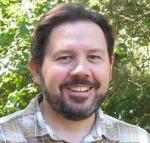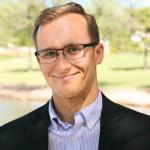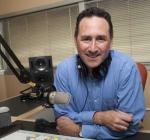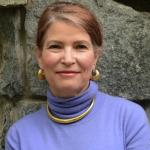Climate Communication experts Blair Bazarich from the San Francisco Zoo and Hannah Pickard at Boston's New England Aquarium share proven insider tips about effective communication strategies. They are both leaders at NNOCC, the National Network of Ocean and Climate Change Interpretation. They train aquarium and zoo professionals how to speak about climate change. NNOCCI is a network of individuals and organizations in informal education, the social sciences, and climate sciences.They are currently working in 170 institutions in 38 states. NNOCCI members reach over 190 million people each year.
Sometimes we cannot easily imagine the impacts legislation and policy can make. Andrews Smalls from City Lab wrote the article, What American Cities Looked like Before the Environmental Protection Agency Was Created. "Since 1970, the agency has reduced the six most common air pollutants by more than 50 percent, reduced air toxins from large industrial sources by almost 70 percent, and eliminated the use of ozone-depleting chemicals. And this progress was accomplished even as the country’s GDP tripled, energy consumption increased by 50 percent, and vehicle use nearly doubled."
Of course we have still have work to do. We need to reduce localized pollution and heat-trapping greenhouse gases globally. So how do we build the political will so that the public clamors for legislation and policy that will change how we get and use energy? We need to communicate to the public what success looks like. Envisioning success in our climate work though requires imagination.
To help us with this task Sean Dague, the group leader for the Mid-Hudson South chapter of Citizens Climate Lobby, leads us through a powerful exercise. He asks us, What does a decarbonized world look like? What does it smell like? What does it sound like?
Once you hear Sean’s vision of a successful future, we invite you to continue the exercise. Try some creative writing. Write a short story or a letter from the future about what you see, smell, and hear. Maybe create visual art, a drawing or painting. If you can’t draw or paint, get images from magazines and on-line then create a collage. Write a song, create a map, choreograph a dance. Use art to capture a vision of a decarbonized world. Even if you do not see yourself as an artsy person, just try it.
Towards the end of his life, writer Kurt Vonnegut would say, "Everyone should practice art because art enlarges the soul."
PLEASE feel free to share your art with our host, Peterson Toscano, and let him know if I can share it with listeners, on the podcast, Facebook, and Twitter.
If you have art from this exercise to share or if you have idea for the Art House, feel free to contact Peterson at radio @ citizensclimate.org
You just spoke to a group of middle school students about your climate change work. During the Q&A a student named Victor says, “I am freaking out because of all the bad stuff I am seeing and it seems like it is just getting worse and worse. I really do not see the point of even trying anymore. I think we are too far gone. What difference does this make?”
Lots of people young and old feel the same way. So how do you respond to Victor? How can you validate his fears while also giving him reasons to hope and pursue solutions.
Send us your answers. Leave your name, contact info, and where you are from.
Get back to Peterson by September, 15, 2019 Email: radio @ citizensclimate.org or leave a voicemail of 3 minutes or less: 518.595.9414. (+1 if calling from outside the USA.)
- Climate Interpreter, Do you work or volunteer with an aquarium, zoo, national park, national marine sanctuary, or other informal science education center that is addressing climate change? Connect and share with a national community of colleagues and peers.
- NNOCCI’s Research Reports, Frameworks Institute
- What Does Success Look Like? Reports from the Future from Climate Stew
- Role of Values in climate change community engagement, NewsDay
- America Adapts podcast episode 95 Summer Sizzle featuring Citizens Climate Radio
- Citizens Climate Radio Ep 12: Values that drive CCL’s work
You can hear Citizens’ Climate Radio on iTunes, Spotify, Stitcher Radio, SoundCloud, Podbean, No










Add new comment